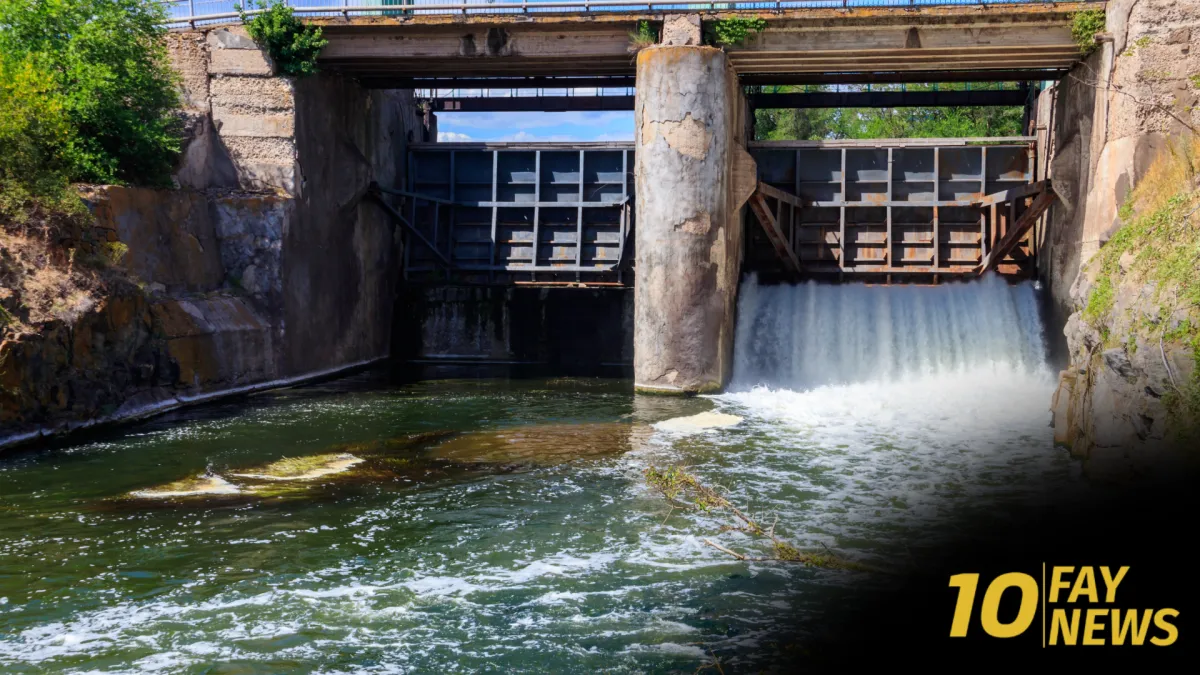
North Carolina Boosts Water Infrastructure with $204 Million Investment
RALEIGH, NC – Governor Josh Stein and the North Carolina Department of Environmental Quality (DEQ) today announced a significant investment of over $204 million to enhance drinking water and wastewater infrastructure across 27 counties in the state. This substantial funding, allocated for 48 critical projects, aims to ensure North Carolinians have access to safe, clean water, address emerging contaminants, replace aging lead pipes, and bolster resilience against future storms.
"When you turn on the faucet in your home, you shouldn’t have to worry about whether that water is safe for your family,” said Governor Josh Stein. “These investments will help ensure North Carolinians have access to clean drinking water and will help keep people safe when disaster strikes."
DEQ Secretary Reid Wilson echoed the Governor's sentiments, emphasizing the department's commitment to public health. “At DEQ, we’re committed to ensuring everyone in North Carolina has access to clean water,” said Secretary Wilson. “This funding will address aging infrastructure and improve public health for communities large and small.”
The awarded funds stem primarily from the State Revolving Funds, including allocations from the federal Infrastructure Investment and Jobs Act (IIJA). These programs provide low-interest loans, some with partial forgiveness, to support vital water infrastructure initiatives. This round notably includes IIJA funding specifically targeting emerging contaminants like PFAS (per- and polyfluorofluoroalkyl substances) and lead service line replacements.
Among the notable projects receiving funding are:
The Town of Bryson City (Swain County): Receiving $9.2 million in Clean Water State Revolving Funds for wastewater treatment plant improvements.
The Town of Waynesville (Haywood County): Awarded $8.2 million from the Clean Water State Revolving Fund for improvements to its Little Champion Gravity Sewer and Pump Station.
The City of Graham (Alamance County): Securing $3.4 million in IIJA Drinking Water State Revolving Fund-Emerging Contaminant (PFAS) Construction funding for enhancements at the Graham-Mebane Water Treatment Plant.
The Fayetteville Public Works Commission (Cumberland County): Receiving a substantial $20.5 million from IIJA Drinking Water State Revolving Fund Emerging Contaminant (PFAS) Construction funding for a Granulated Activated Carbon (GAC) facility at the P.O. Hoffer / Glenville Lake Water Treatment Plant.
The Town of River Bend (Craven County): Allocated $6.3 million in Drinking Water State Revolving Funds for Phase II drinking water improvements.
The Martin County Regional Water and Sewer Authority: Receiving $1 million in IIJA Drinking Water State Revolving Fund-Emerging Contaminant (PFAS) Construction funding for GAC filters for PFAS removal.
The City of Lenoir (Caldwell County): Awarded $5.6 million from the Clean Water State Revolving Fund for Lower Creek Wastewater Treatment Plant Process Basin Improvements, alongside $1 million in IIJA Drinking Water State Revolving Fund Lead Service Line funding for its Lead Service Line Inventory Phase 3 project.
The City of Lexington (Davidson County): Receiving $13.7 million in Clean Water State Revolving Funds for the Lexington Regional Wastewater Treatment Plant Solids Handling Improvements project.
The City of Henderson (Vance County): Granted $10.7 million from the Clean Water State Revolving Fund for the Sandy Creek Pump Station and Force Main project.
The Town of Warrenton (Warren County): Securing $10 million from the Clean Water State Revolving Fund for its Phase IV Wastewater Treatment Plant Improvements project.
The City of Sanford (Lee County): Receiving $7.3 million in Clean Water State Revolving Funds for its Dry Creek Basin Sewer Rehabilitation project and $1 million each for its Sanford/TriRiver Water/Chatham County and Sanford/TriRiver Water/Siler City Lead Service Line Inventory projects.
The Pfeiffer-North Stanly Water Association (Stanly County): Awarded $4.9 million in Drinking Water State Revolving Funds for its N. Main Street and Old 52 waterline replacement project.
Carolina Water Service, Inc.: Receiving a total of $5.5 million for six projects across Cumberland, Gaston, Moore, and Pender counties, addressing PFAS-related, lead service line identification, or water line-related funding.
The North Carolina Department of Environmental Quality’s Division of Water Infrastructure meticulously reviewed 133 eligible applications, which collectively requested a total of $1.57 billion. The State Water Infrastructure Authority, an independent body charged with awarding federal and state funding for water infrastructure projects, approved these awards during its July 16 meeting.
Looking ahead, the Division of Water Infrastructure's Fall 2025 funding round opens on July 29, with applications due by 5 p.m. on September 30, 2025. This upcoming round will continue to prioritize projects addressing PFAS contamination, lead service line replacement, and offer Viable Utility Reserve grants to distressed utility systems for planning and construction.
Additionally, applications for new federal supplemental appropriations from the 2025 American Relief Act to build resilience in Hurricane Helene-impacted communities in Western North Carolina will be accepted on a rolling basis, starting at the end of July and continuing through 2026.
To assist potential applicants, the Division of Water Infrastructure will conduct in-person funding application training sessions at six locations: Clyde, Hickory, Boone, Fayetteville, Winterville, and Research Triangle Park/Durham. A virtual option via Webex will also be available, with a recording of the training posted on the Division’s website.

